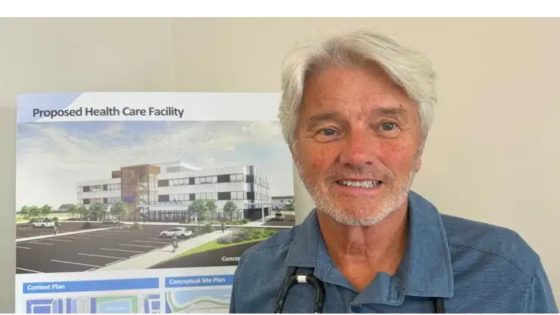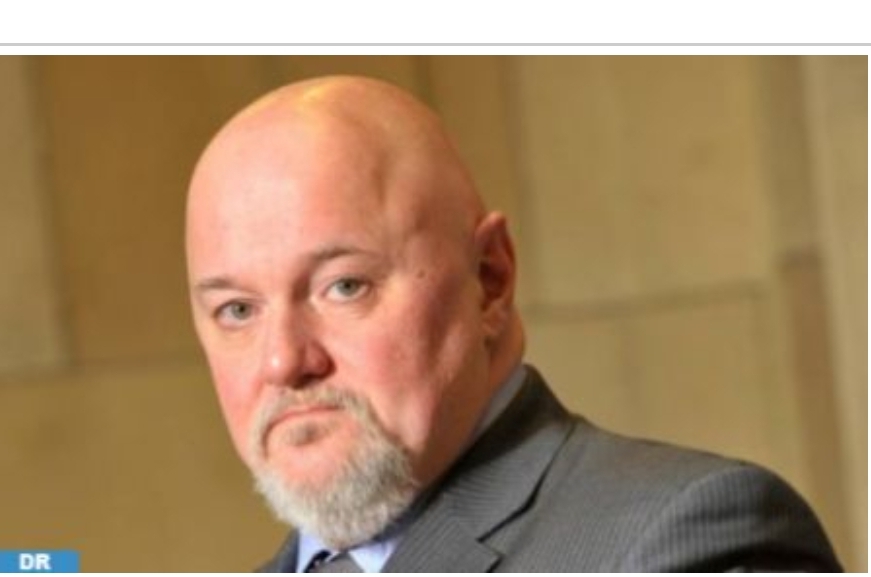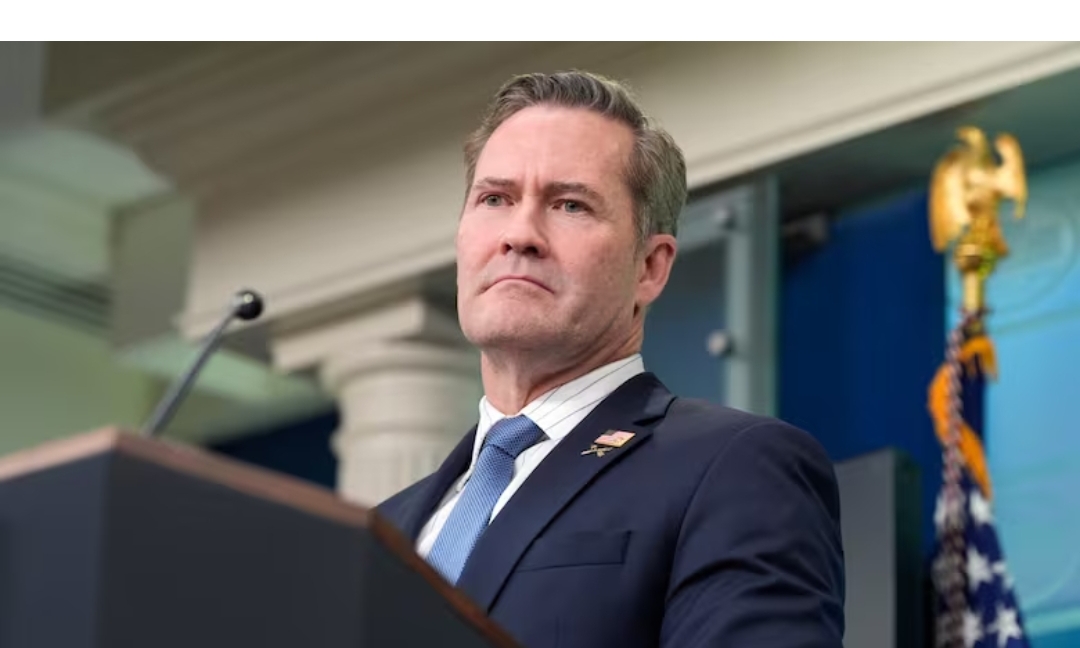Assahafa.com
Alberta Health is currently exploring a proposed “campus” in the city of Airdrie that would see a “one-stop shop” built that aims to serve most health-care needs in the municipality located north of Calgary. The proposal comes from a private company called One Health Associate Medical.
Proponents behind the project say they hope it could serve as a prototype for other communities across Alberta struggling to serve residents amid a health-care crisis, with a goal of reducing unnecessary urgent care visits and wait times.
But it has simultaneously raised concerns from public health advocates, who are uneasy about the project’s potential to reshape the landscape around privately delivered, publicly funded health care in the province.
Today, all urgent care facilities across the province are operated by Alberta Health Services.
Alberta has a history of implementing various publicly funded health-care arrangements with private corporations, including arrangements put in place to address surgical backlogs, and privatized community lab services.
But a for-profit operator of an urgent care centre in Alberta would be a first, and something the public health non-profit group Friends of Medicare calls a possible “massive, unprecedented shift.”
“This would be a huge step to how we deliver health care,” said Chris Galloway, the organization’s executive director.
It comes after years of fits and starts tied to various health-care initiatives in Airdrie, a community that has seen its population boom in recent years.
“Our proposal [is] that we build a facility where a primary care and enhanced primary care team is present,” said Dr. Julian Kyne, a long-time physician in the community and director of One Health Associate Medical.
“Doctors are present, co-located with an urgent care centre.”
In December 2023, the provincial government provided One Health Airdrie with an $85,000 grant to initiate a business case. That business case has been submitted and is currently being studied by the province.
A government spokesperson said there have been no decisions made about who would operate a possible site proposed by One Health.
The need in Airdrie
Airdrie is home to more than 80,000 people, making it the largest community in the province without a hospital. The city already has a 24-hour urgent care centre, but advocates have long been pushing for expanded services.
“We’re told quite often, you’re really close to Calgary. Go to Calgary,” said Michelle Bates, executive director of the Airdrie Health Foundation, a charity that raises money for health in the Airdrie area.
“And for a while, that made sense.”
But Airdrie is one of the fastest-growing communities in the province, with a population that’s surged from around 56,000 residents in 2014 to more than 83,000 residents in 2023.
Joan MacDonald has been one of those Airdrie residents for 35 years.
“Airdrie desperately needs more doctors, desperately needs a hospital,” she said. “Going into urgent care is hours and hours of wait.”
Dishant Oza, another resident, said he visited urgent care with a fractured leg, but was told it would be a 24-hour wait.
“The nearest hospital we have is in Calgary, which takes like 30 minutes to drive down,” Oza said.
The urgent care facility in the community is equipped to handle immediate health issues and started offering 24/7 urgent care in 2017.
But there are gaps, including around labour and delivery, diabetes care and overnight beds, and the site’s footprint can’t grow any further, according to Bates with the Airdrie Health Foundation.
So residents were pleased to see $3 million over three years allocated from the province for the planning of a north Calgary and Airdrie regional health centre as a part of the 2023 provincial budget. The province has also allocated $8.4 million to renovations of the urgent care centre.
The planned upgrades were temporarily put on pause in February 2024, when the provincial government said it would consider the pitch from One Health Associate Medical and developer Qualico Communities.
Though One Health’s business case is still under review, renovations at the urgent care are expected to be completed next summer, according to the province.
The proposal and plans for a future hospital
Kyne with One Health said, under the group’s proposal, the health campus would provide diagnostic imaging, a pharmacy, primary health care, medical specialists, and more.
When it comes to urgent care, the proposal asserts that 40 to 50 per cent of patients who show up at urgent care could be seen by a family doctor.
By having co-located urgent and primary care, the facility would be able to divert patients to more appropriate appointments with family doctors, Kyne said.
“Saving the health-care system untold thousands of dollars every day,” he added.
The Airdrie Health Foundation has yet to see One Health’s proposal. Bates said having another urgent care facility in the city would be positive — it would likely bring down wait times, for instance.
But it has raised questions about whether this proposal might throw cold water on the group’s ultimate goal of establishing a possible future hospital.
“Will this take away from what we get in the future? Will it be another, ‘Airdrie has what they need right now, and we can just put this long-term plan off?'” she said.
Kyne doesn’t foresee that becoming an issue.
“We’re talking about primary care, community-based care, whereas a hospital is tertiary care. That would have absolutely no influence on whether or not a hospital is planned for Airdrie,” he said.
Airdrie Mayor Peter Brown shares that view of the proposal.
“It’s really exciting. It’s really innovative. It changes how we do things,” he said.
“There’s a lot of real pluses to this. It also provides a real opportunity for health professionals that live in Airdrie and area to work closer to home.”
On transparency and privatization
But the way this whole process has played out has troubled Friends of Medicare, the public health non-profit group.
“There’s been no request for proposal. There’s been no public process about what needs they’re even trying to meet from the government side,” said Galloway, the organization’s executive director.
The broader concern for Friends of Medicare is that the Airdrie plan might function like a “test site” for the privatization of hospital services elsewhere, according to Galloway.
“It’s not totally clear how it will work, because no one has seen the proposal. But it’s clearly looking at a different model for how they can bring in a private, for-profit partner or player into our hospital services,” Galloway said.
Kyne said his long history in trying to establish new health-care sites in Airdrie — he said he’s been a physician for 35 years, and this represents his third attempt at bringing a new facility to the community — should alleviate the concerns of Albertans worried about a possible privatization push.
“Anyone who knows me knows that I’m the antithesis of that,” he said.
“What we’re looking at, our whole point is, how do we keep people healthy so that we actually don’t end up sending them to hospital?”
The impact of the AHS reorganization
With that in mind, Kyne feels as though it’s time for a reimagining of urgent care.
He said he doesn’t agree with the characterization that this would be the first privately delivered, publicly funded urgent care centre in Canada.
“Not really,” he said. “When you look at all your urgent care doctors, they’re all private.
“It’s a publicly funded facility, but we’re delivering as private practitioners, same in your family doctor’s office, same with your community radiology clinics, same with the emergency departments.”
When asked, he did agree that all urgent care is presently delivered by Alberta Health Services, and that this would represent the first concept of its kind.
“Right. But it would be under the auspices of that new primary care organization that the government is setting up, right? It depends on what the ultimate arrangement is going to be,” Kyne said.
Urgent care falls under AHS right now, and the health authority administers it, he noted.
“With the proposed changes … AHS doesn’t necessarily have to be in charge of that,” he said.
An emergency department lies within a hospital where it has multiple supports. Urgent care centres located within standalone buildings don’t, he said.
“We’re saying, with urgent care, it would fit nicely within a primary care setting.”
A new model for health care
The model being proposed is unique in Canada, said Braden Manns, a professor of medicine and health economics at the University of Calgary.
Manns was previously the AHS interim vice-president of provincial clinical excellence, and resigned in protest of the dismissal of Alberta’s former chief medical officer of health, Dr. Deena Hinshaw, from an Indigenous health team. He is the recipient of a CIHR Foundation award in health system funding.
“There’s a couple of nuances here, but it seems like this is going to be a private, for-profit urgent care centre, with linkages to a family practice that’s in the same building, or very close, geographically,” he said.
“As far as I’m aware, this is the first example of a publicly funded, privately for-profit delivered urgent care centre in Canada.”
CBC Explains
Do private, for-profit clinics save taxpayers money and reduce wait times? The data says no
Manns said it’s true that it’s unclear where the province’s current urgent care centres will sit after the planned reorganization of AHS. But regardless, urgent care facilities at present are publicly funded and publicly delivered, with independent physicians, he said.
“Physicians, they want to do the right thing for you when they’re seeing you. So they often are referred to as private, not-only-for-profit,” Manns said.
“That’s not going to change. But somebody needs to run the building, somebody needs to hire the staff. All of that stuff is going to be done with the for-profit in mind. And I presume there’s going to be an investor behind all of this, and they’re not a charity.”
There’s no question that Airdrie needs additional health care services, Manns said. There are real challenges that the broader health care system is facing right now, and he added he’s not necessarily against contracting out some delivery of health services.
The challenge, he said, is to do it successfully — something that some privately delivered forms of health care have failed to follow through on.
“You need to be able to measure quality. You need to make sure that patients are having a good experience. It needs to be funded publicly. And it needs to be less expensive. If it isn’t less expensive, then there’s no reason to do it,” Manns said.
He added that he’s opposed to contracting out urgent care, saying it meets “none of the criteria” for the kind of services suitable for such an arrangement.
For Kyne’s part, he’s confident that this new proposal can deliver.
“Delivering good health care doesn’t have to be crazy expensive, right? Delivering good health care, you just have to be smart about how you do it,” he said.
“The whole idea is that we are going to be able to produce measurable results, showing progress in terms of not just health outcomes, but in terms of bending the curve when it comes to health care expenses, because we’ve got to come up with a solution.”
Kyne said he expects a decision from the province about whether the project will move forward in the next few weeks.
Source: cbc














